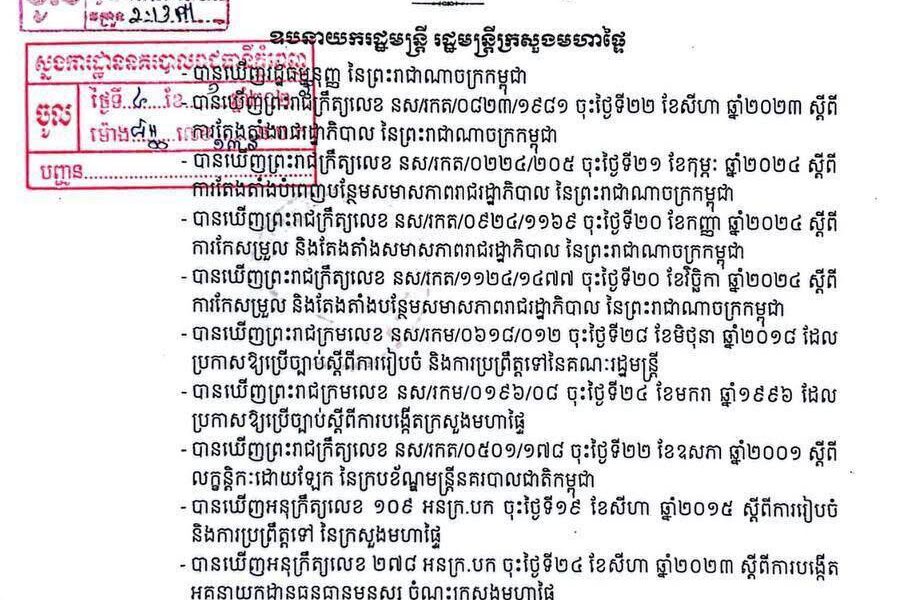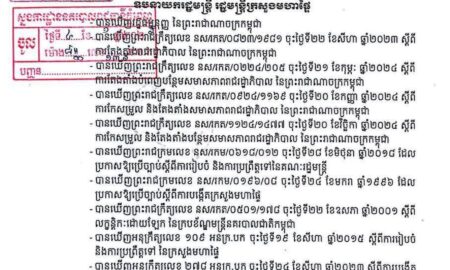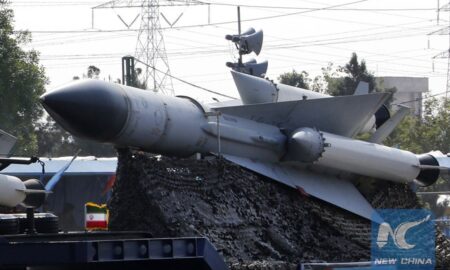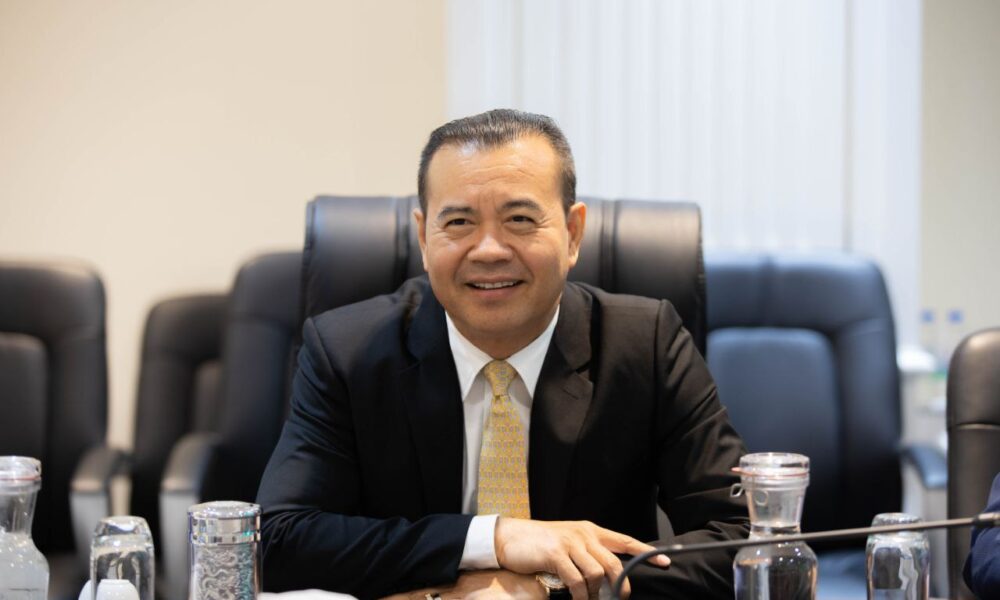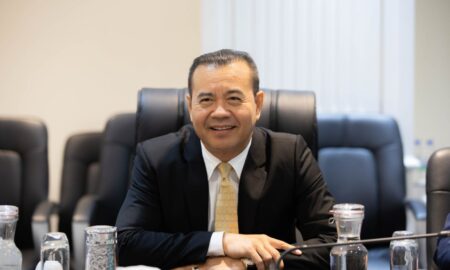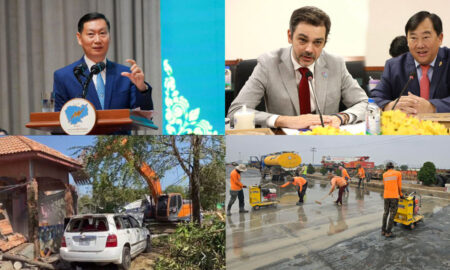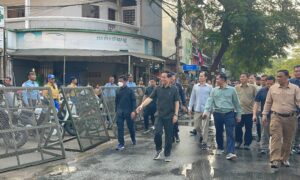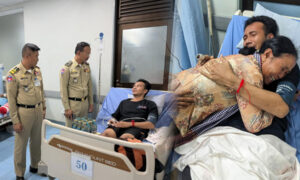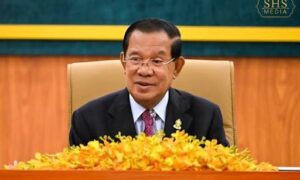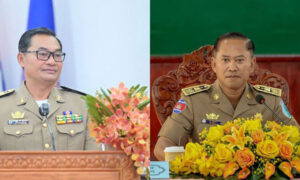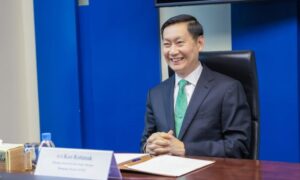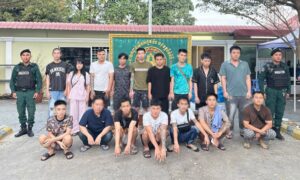Letter to editor: Anutin’s Thailand: The Politics of Fear Behind a Smile
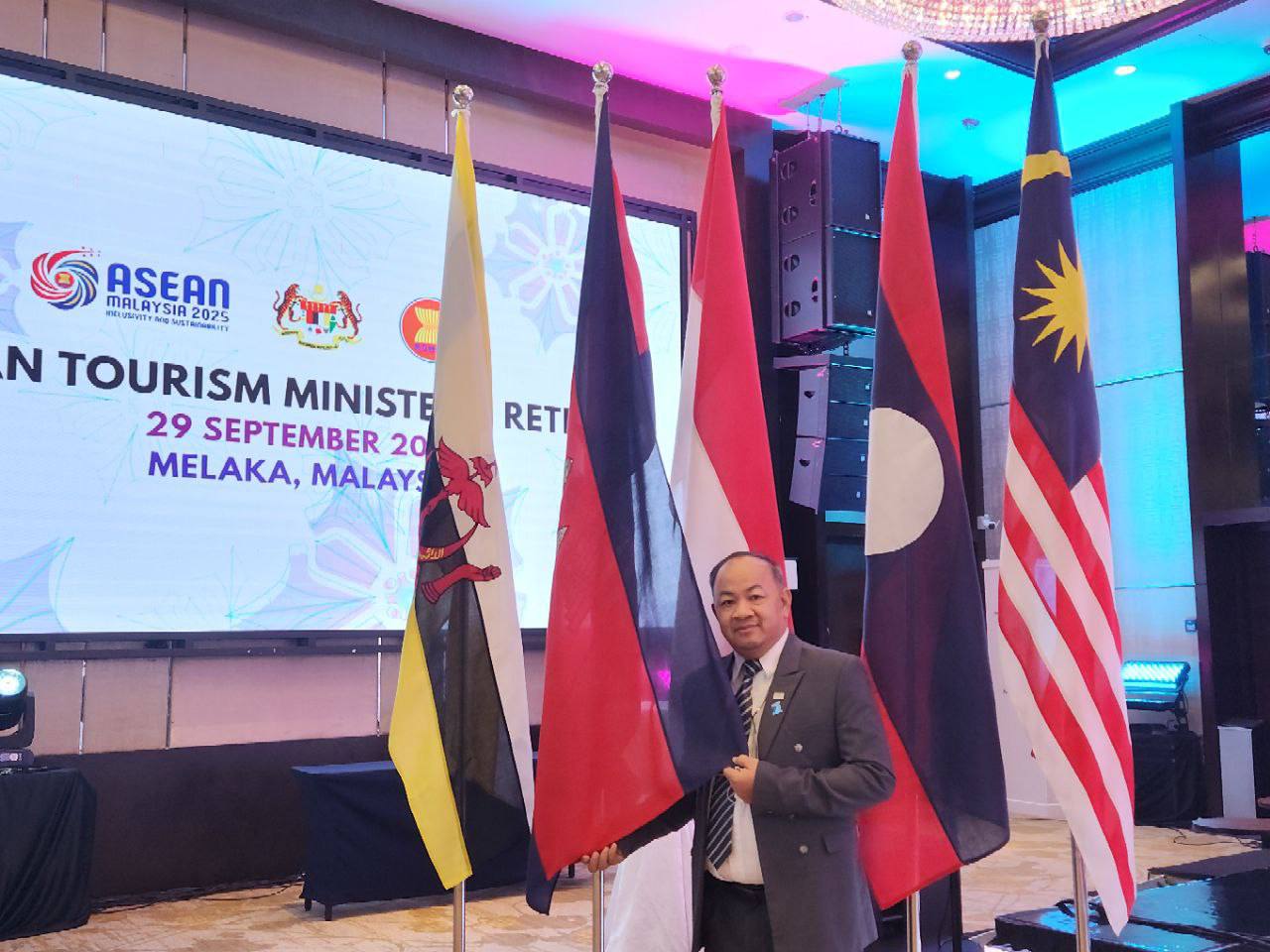
By Dr. Thourn Sinan – Spiritual & Tourism Professional
18-19 October 2025
Anutin’s Thailand: The Politics of Fear Behind a Smile
Thailand loves to call itself the “Land of Smiles.” But under the leadership of Prime Minister and Interior Minister Anutin Charnvirakul, that smile has become a mask — a polished facade hiding a deep rot within the nation’s political, legal, and moral systems.
Behind every friendly handshake and glossy tourism campaign lies a state driven by fear, deception, and declining legitimacy.
1. A Government Built on Fragility, Not Confidence
Anutin Charnvirakul rose to power through parliamentary deals, not popular mandate. His coalition, born from backroom negotiations and elite compromises, represents political convenience rather than democratic conviction.
In his hands, Thailand’s dual roles — Prime Minister and Minister of Interior — have concentrated unprecedented power in one man, allowing him to shape both internal governance and political policing.
But this concentration of power has not brought stability. It has bred paranoia. The government constantly fears protests, media exposure, and international criticism. The obsession with control — over speech, activism, and even culture — reveals a nation insecure about its own legitimacy.
Instead of confidence, Thailand’s political class governs through fear and theatrical patriotism, distracting citizens from corruption and policy failures with nationalistic slogans and regional posturing.
2. Law as a Weapon, Not a Shield
Thailand’s justice system, once seen as a model for ASEAN, has deteriorated into a political instrument of intimidation.
Courts have been used to dissolve opposition parties, silence student movements, and criminalize dissent under vague “national security” laws. Dozens of activists have been arrested for “insulting the monarchy” or “inciting public disorder,” often for nothing more than peaceful protest or online commentary.
Meanwhile, the same system remains blind to crimes committed by the powerful.
Money laundering, vote buying, and police corruption flourish under protection from political allies.
When investigations arise, they rarely reach the top — instead, scapegoats are produced while ministers and billionaires walk free.
Under Anutin’s Interior Ministry, the law has become a shield for elites and a sword against critics. This distortion of justice has not only corroded Thailand’s reputation but also poisoned the moral core of its governance.
3. The Decline of Institutional Integrity
Thailand’s bureaucracy, once admired for efficiency, is now crippled by patronage and self-censorship.
Civil servants know that loyalty to political networks, not merit, determines promotion.
Governors, police chiefs, and provincial officials are often rotated or removed for refusing to serve political orders.
The Interior Ministry, which Anutin personally controls, has become a mechanism for maintaining political obedience rather than public administration. Provincial budgets are used to reward allies, silence critics, and fund election campaigns disguised as “development projects.”
Even Thailand’s once-respected foreign service has lost credibility. Diplomats now spend more time defending government propaganda than promoting Thailand’s genuine values abroad.
4. Economic Mismanagement and the Mirage of Stability
Anutin’s government boasts of economic recovery and investor confidence, yet real indicators tell another story:
• Household debt has reached record highs, surpassing 90% of GDP.
• Youth unemployment continues to rise.
• Tourism, despite flashy campaigns, still suffers from weak management and lack of authenticity.
The administration’s response has been pure optics — short-term cash programs, digital wallet gimmicks, and “sustainable economy” slogans with no coherent plan.
Thailand’s rural poor remain neglected, while the capital’s business elites dominate policy.
Infrastructure projects are handed to connected conglomerates, often without transparency or accountability.
The result is an economy running on borrowed time and borrowed credibility.
5. Foreign Policy of Opportunism and Hypocrisy
Under Anutin, Thailand’s foreign policy has lost its moral compass.
The government postures as a regional peacebroker, yet it profits from instability in neighboring states.
While condemning scam networks in Cambodia and Myanmar, Thai officials are accused of laundering illicit money and harboring fugitive financiers.
Bangkok’s recent attempt to use Laos as a trade detour to bypass Cambodia is a prime example of self-interest disguised as cooperation. Rather than strengthening ASEAN unity, Thailand has become a destabilizing actor — a nation that preaches ethics while quietly undermining its neighbors for gain.
This duality — diplomacy in words, domination in deeds — exposes the emptiness of Anutin’s regional leadership.
6. The Politics of Fear and Illusion
At home, Thailand’s media landscape has shrunk under censorship. Investigative journalists face surveillance, lawsuits, and online harassment.
Social media platforms are monitored; critics disappear from public life.
The political class controls narratives through fear — fear of losing face, fear of losing privilege, fear of being exposed.
But fear cannot build a nation. It can only suffocate it.
The Thai people deserve more than staged smiles and hollow unity campaigns. They deserve transparency, justice, and truth — qualities that Anutin’s administration cannot deliver as long as it serves itself before its citizens.
7. The Moral Cost of Deception
A country’s strength is not measured by military budgets or export statistics, but by the moral trust between its people and its leaders.
In Thailand, that trust has eroded. Under Anutin’s rule, religion is politicized, law is corrupted, and diplomacy is opportunistic.
What remains is a nation that looks confident on the surface — but trembles within.
Thailand’s “Land of Smiles” has become a land of silence, where obedience replaces conscience and propaganda replaces truth.
Until integrity, compassion, and justice return to its leadership, Thailand’s smiles will remain painted — not genuine.
References
1. Bangkok Post – “Household Debt Hits 90% of GDP Under Anutin’s Leadership” (2025)
2. Khaosod English – “Activists Face Fresh Charges as Interior Ministry Expands Security Powers” (2025)
3. Reuters – “Thailand’s Economy Faces Stagnation Despite Government Stimulus Plans” (2025)
4. The Guardian – “Thailand’s Courts Used to Silence Dissent, Say Rights Groups” (2025)
5. The Nation Thailand – “PM Anutin Vows Border Stability While Trade Tensions Rise” (2025)
6. ASEAN Briefing – “Thailand’s Shifting Strategy in Laos and Cambodia: Trade or Influence?” (2025)
7. Human Rights Watch – “Thailand: Increasing Repression of Expression Under Anutin Administration” (2025)
Weekend Analysis © 2025 – Dr. Thourn Sinan


